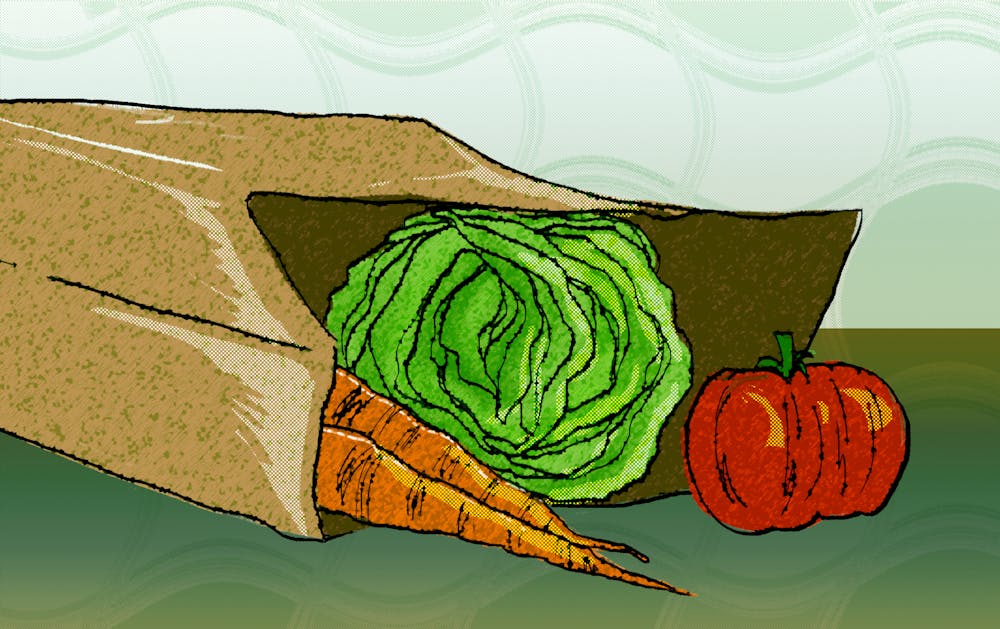A College of Health and Solutions researcher piloted a unique educational intervention study that used personal values to help reduce food waste in 53 Phoenix homes with successful results.
The study was conducted with a $100,000 grant from the city of Phoenix partnered with Rob and Melani Walton Sustainability Solutions.
Participants were not told what the study was measuring, but they were trained to properly collect, weigh and report the food waste from their household each week. They were also asked to review educational materials such as podcasts, infographics and videos from a specially designed open-access "Waste Watchers" website.
The educational resources included three values the researchers theorized would influence better decisions: impacts on health, home finances and the environment. In the weeks before and after the intervention, participants also completed a series of surveys on food waste behaviors and behavior change constructs.
“People care about food for different reasons; some people value managing their food and what they eat, some care about how much their food is costing them and some care about environmental impact, which is becoming more and more of a value people have to be concerned about,” said Christopher Wharton, lead author for the study and assistant dean of innovation and strategic initiatives at the College of Health Solutions.
Food waste is a major contributor to personal impact as well as mental and physical well-being, according to Wharton. Whether the families cared mainly about finances, health, or the environment, all had a reason to cut back on food waste. The participants met the researchers' goals during the five-week intervention, reducing their food waste by just under 28%.
Wharton said understanding how food impacts us is easy for an individual, but the consequences of our food waste are not as obvious.
“When you eat food, sometimes you have a feedback mechanism which makes you feel better or worse and in the long term, it either supports health or can detract from your health,” said Wharton. “There are feedback mechanisms in how we treat food in terms of intake, but the waste, there’s not really a feedback mechanism.”
According to the study, the U.S. wastes 133 billion pounds of food or roughly 30% of the total available food supply annually at the consumer and retail level.
Wharton said without an understanding of the consequences of wastefulness, the country will continue to suffer.
When waste ends up in landfills it lets out greenhouse gas emissions, one of the principal drivers in climate change. This has become the third-largest source of human-induced methane emissions in the U.S.
“The production of food has environmental impacts, so once the food arrives at the consumers, it has a CO2 budget ingrained," said Daniel Fischer, ASU faculty associate of sustainability education. “Storing food adds to the CO2 footprint, and if you toss it, this adds even more. Different types of groceries have very different CO2 budgets. Generally, red meat has among the highest.”
Fischer said there are also indirect impacts of food production such as industrial-scale production, which is often done using monoculture farming and pesticides — both of which have a negative impact on biodiversity and climate change.
Fischer is currently conducting a similar study to Wharton’s in which high school students conduct research on their own food waste and then complete the intervention process.
The findings of the two studies and Wharton's online resources could also benefit college students who are just starting to live — and manage food waste — on their own.
“I haven’t been very good with fruit, my bananas always go bad before I can eat them all, but if I buy fresh food I will always try to eat that before I eat any frozen or boxed food,” said Alec DeGregoris, a junior majoring in business.
Reach the reporter at jqmoya@asu.edu and follow @JudahMoya on Twitter.
Like The State Press on Facebook and follow @statepress on Twitter.




